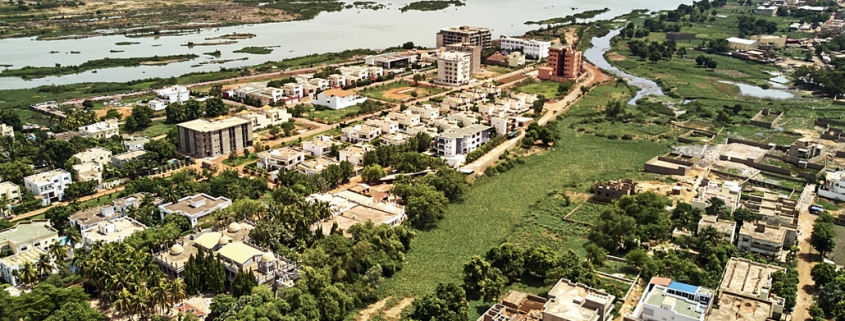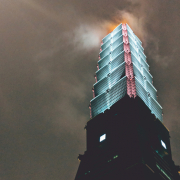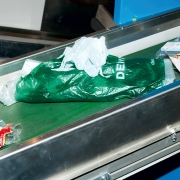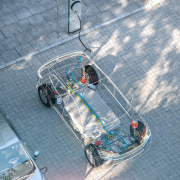Ivory Coast: Waste Management Is still a “Problem Child“
Ivory Coast has put an end to the past violence and political turbulence. According to the World Bank, the African country shows a GDP rate of eight percent last year and offers great opportunities for investment. But its waste management sector still needs help.
In 2006, the waste management of the Ivory Coast attained sad famousness. A mixture of over 500 tons of fuel, caustic soda, and hydrogen sulfide of toxic waste was dumped at 18 sites around Abidjan, the economic capital of the country. The international commodities trader Trafigura had tried to save charges in Europe, sent a vessel to several countries which rejected the hazardous substances, and finally disposed of the load for allegedly 17,000 US-Dollar near Abidjan. The UN published that 15 people died, 69 people were hospitalized, and over 108,000 others sought medical treatment during the following days. Trafigura, later on, paid over 200 million Euro support complete remediation as well as compensation payments. According to The Guardian, lawyers speculated that some money might end up being stolen thanks to the Ivory Coast regime’s corruption. Clean-up and treatment work continued at some of the sites affected by the dumping until as late as 2015 and 2016. In November 2015, the Ivorian Government announced that it had completed the decontamination of all of the dumpsites.
Waste infrastructure: missed
At that time, figures regarding amount and treatment of Ivorian waste could not be found. Merely EWIT, the European Union funded E-Waste Implementation Toolkit, found out that the population of Abidjan in 2015 consisted of 5,5500,000 residents – a quarter of the Ivory Coast population – and produced slightly more than one million tons per year and 1,500 tons of E-waste per year. Although it is estimated that 80 percent of the national industrial activity at the Ivory Coast are concentrated within the District of Abidjan, there were no collection station, no dismantling facilities and no material recovery facilities installed. Data on repair and refurbish facilities were missed. 176 landfills and dumps had been closed; 151 dumps and one landfill were active.
Funding urgently needed
As the Global Partnership on Waste Management gave account already in 2012, the Ivory Coast urgently needed funding for the installation of waste management facilities in the country. Projects for landfills, incinerators and autoclaves to treat both hazardous and non-hazardous waste streams lacked sufficient financial support. The list of wishes for better management of industrial waste included more access to technologies for waste segregation, the construction of incinerators, a waste exchange and some storage facilities for hazardous waste. In spite of existing policy plans, this had not yet been realized due to a lack of funds, resulting in dumping as the most common practice. The same with the management of hazardous waste: The realization of finalized plans were hampered by deficient funds leading to lack of equipment, limitation of enforcement and disposal of contaminated waste alongside municipal solid waste or outside of landfills. Furthermore, the management of MSW needed funding for the procurement of waste collection equipment, the construction of landfills and the installation of recycling centers, not to mention education programs for training the public.
Failures
Some projects attempted to change the status quo. In 2014 Ivory Coast Prime Minister Daniel Kablan Duncan launched a plastic bag collection, processing and recycling project. It was estimated at 26,000 Euro and found appropriate to create 10,000 jobs long-term. But as small bags are used widely in Africa to package water, the water sellers’ union protested against the ban potentially putting thousands of water sellers out of work. The NGO Afrik Environnement planned to create a plastic waste recycling center in the town of Abidjan in 2010 that “has not seen the light of day”. The intent of building a composting factory on the outskirts of the Akouédo landfill was supposed to begin in 2014 but seems to have been postponed because of several open decisions on available land and the position of the collection points. The capture and exploitation of biogas at the Akouédo landfill in Abidjan – anticipated costs: 18 million Euro – was “mobilized for funding” in 2015.
Another project to burn gases from the Akouédo tip that should have started in 2011 and end in 2018, was not put into service because of financial and authorization difficulties. In 2015, two additional technical landfill centers for household waste were “under construction”: the Kossihouen center – which should theoretically open at the end of 2015 and had its cornerstone ceremony in Spring 2018 – and the Atiékoi center – planned since 2003 and without completion date in 2015. At least some composting programs were promoted.
A called-off deal
A breakthrough seemed to be attained in 2014 when U.S.-based environmental services firm Wise Solutions CDI decided to invest 226 million US-Dollar to acquire equipment and build an infrastructure in Abidjan’s waste management. In addition, provisions were made for the construction of up to three recycling and digester plants to process 6,000 tons daily and up to 2.5 million tons annually. The deployment of activities should occur in summer 2015, and the waste sorting and recycling units were planned to be operational in 2016. At that time Ivory Coast was pushing for heavy investments to upgrade infrastructure. The concession was funded for 15 years. However, the deal was called off. In December 2017, Wise Solutions declared an arbitration claim against the Republic of Ivory Coast to the International Center for Settlement of Investment Dispute. The licenses were taken over by other foreign companies.
Insufficiencies persisting
All in all, effective private investment in the public waste management branch can hardly be found – except in refuse collection for which the municipals are responsible. The collection concessions are awarded to private enterprises to transport the waste from source to landfill. A country report presented in late 2017 detected that neither government, municipalities nor private or private-public corporations were able or willing to procure money. Because of a sharp increase in the aggregate quantity of industrial waste and a steady increase of general consumption foreseen, the report is dunning urgent attention and innovative solutions, “as both policy-makers, technical actors and citizens are clearly outpaced by the intensity of environmental and health issues associated with wrong behaviors, poor practices and ineffective actions”. Insufficient technical capabilities in the public stream and a recovery rate of 20 to 40 percent merged with “a strong reliance on industrialists’ goodwill to create value through re-use, recycling or treatment”. And the management of residential waste was characterized by tardiness in finding appropriate solutions, an overall lacking education of the population on proper waste disposal and the failing of an operational recycling facility. A scientific article even spoke of a “crisis of management of household waste in Abidjan”, declared failures of service providers and ranked “the informal private pre-collectors … to be more effective and appreciated by the households in their actions”. The situation did not change generally, when Abidjan’s city cleaning system was supplemented by 256 new vessels in April 2018.
Chances for implementation
That does not mean that there are no chances for the implementation of recycling projects – especially under foreign help. The Electronic Waste Project of the Ivorian charity Enter Mesad – set up 2014 by European mobile giant Orange – was started to run the country’s first mobile phone recycling collection center. Suppliers were paid for delivering the mobile tech waste, that was sorted, repackaged and sent to France for recycling. Another example is the e-waste disposal campaign launched in 2015 by communication technology firm Ericsson and communication services enterprise MTN Ivory Coast. Supported by the Ministry of the Environment, it aimed to drive the awareness and collection of electronic waste, to open a public collection station and finally to transport the collected e-waste to a recycling partner to South Africa. And a new branch of waste treatment at Ivory Coast might be really successful. The country is the world’s top cocoa producer with around two million metric tons of cocoa annually and 26 million metric tons of pods left or burned. So, a biomass power station has lately been planned for 60 to 70-megawatt capacity. Although Ivory Coast is rich in the reliable power supply and delivers power to its neighbor states, the rising domestic consumption makes additional capacities necessary. The U.S. Agency for Trade and Development wants to substitute the feasibility studies for the plant.
Outlook: optimistic
It seemed that in 2017 the government took off the gloves to activate waste management. The Agence Nationale de gestion des déchets (short: Anaged) was founded as a subdivision of the Ministry of Environment to serve a comprehensive waste collection and infrastructure program. Anaged’s general manager Sarrahn Ouattara prefigured, that the government would adopt the solution of recycling problems, seek private partners from abroad and call for bids in 2018 and 2019. But to this day nothing mentionable happened. Currently, there is no additional privately financed waste treatment project in sight. According to consulting agency Germany Trade & Invest, innovations in Ivory Coast’s waste disposal sector might result from internationally acting producers of consumer goods in the country, or smaller local recycling companies specialized on waste disposal complying with international standards. Optionally an incentive could result from the National Development Plan 2016-2020, valued at 60 billion US-Dollars and funded by 40 percent from the public and 60 percent from the private sector. This is why – as the online-magazine Africanews titled – “Ivory Coast seeks top investment destination status for West Africa”. Ivory Coast is considered as “one of the best bets in Africa” with a diverse sector for investment. And this should radiate in the waste sector too. Not for nothing does the Center for Investment Promotion of Ivory Coast offer the following investment projects as “very profitable”: construction materials, plastic recycling units for the production of packaging, paper and cardboard recycling units, paper production units based on cellulosic waste, and units for recycling of cullet, hollow glass and molded glass.
Photo: Thomas Brissiaud / fotolia.com
GR 3/2018









